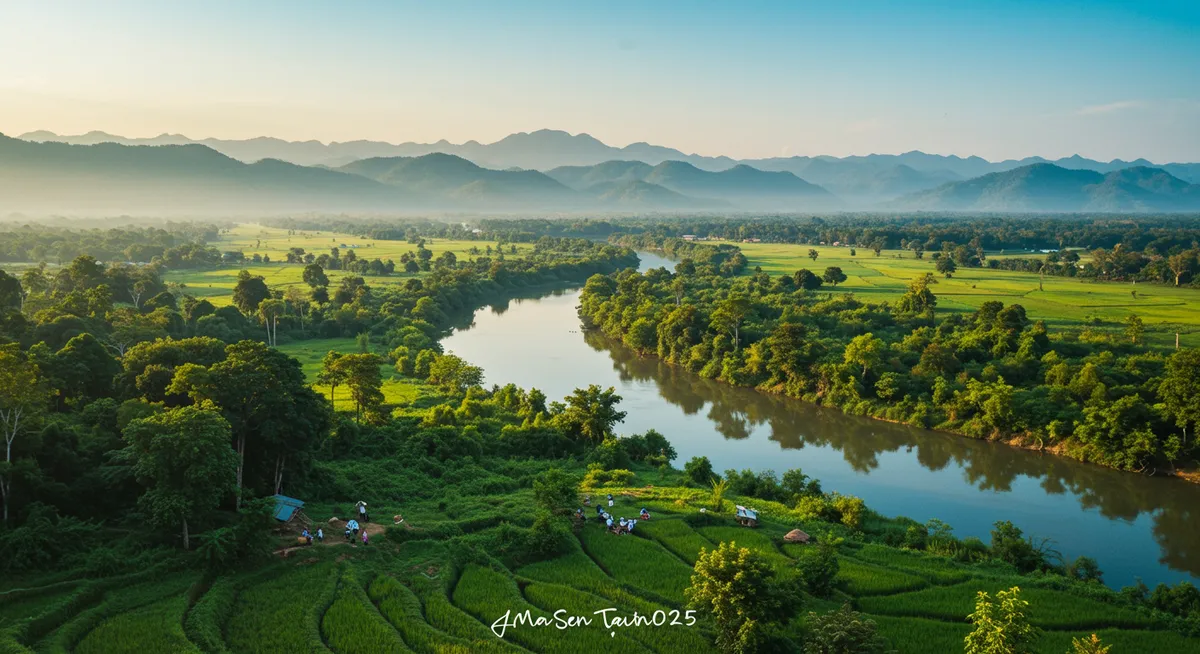
Best Time to Visit Mae Sot Nature in 2025
Table of Contents
Want to find the best nature experiences for this destination? Chat with our nature tourism specialist!
Get Nature TipsCategory: best-time-to-visit-mae-sot-nature-2025
Best Time to Visit Mae Sot Nature in 2025
Having spent considerable time exploring Thailand's diverse landscapes, I can confidently say Mae Sot offers a unique blend of culture and stunning natural beauty. Planning your trip carefully is key to fully experiencing its outdoor wonders. This guide will reveal the best time to visit Mae Sot nature in 2025, helping you navigate the seasons for an unforgettable adventure. Whether you dream of lush jungles, cascading waterfalls, or serene hiking trails, knowing the local climate ensures you hit the sweet spot for your preferred activities. Let's dive into the optimal periods to discover Mae Sot's captivating environment.
Understanding Mae Sot's Climate: Key Seasons
Mae Sot, nestled on Thailand's western border, experiences a tropical climate with distinct seasons, significantly impacting your nature explorations. Generally, the region has three main periods: cool/dry, hot, and rainy. Understanding these patterns is crucial for planning when to visit Mae Sot's stunning natural attractions. The temperature variations throughout the year dictate the accessibility and enjoyment of outdoor activities like trekking or waterfall visits. For instance, the cool season provides much more comfortable conditions for extended hikes. Personally, I've found early morning treks incredibly rewarding during this period, offering crisp air and vibrant birdlife before the day heats up. Immerse yourself in the tranquility of Mae Sot's diverse natural allure by picking the ideal season.
Optimal Time: The Cool, Dry Season (November–February)
Without a doubt, the cool and dry season, spanning from November to February, is widely considered the best time to visit Mae Sot nature 2025. During these months, the weather is refreshingly pleasant, with cooler temperatures and minimal rainfall, creating ideal conditions for outdoor pursuits. It's perfect for exploring the many incredible hiking trails Mae Sot and its surrounding areas offer. The air feels crisp, visibility is often excellent, and trails are dry and easy to navigate. I always recommend packing light layers for this period, as mornings can be cool, but afternoons are comfortably warm. This season sees fewer mosquitoes too, making it more enjoyable to spend extended time outdoors.
Lush Landscapes: Green Season's Charm (June–October)
While many avoid the rainy season, the "Green Season" from June to October offers a dramatically different, yet equally captivating, Mae Sot nature experience. This period transforms the landscape into a vibrant, verdant paradise, with jungles at their most luxuriant. Most importantly, waterfalls swell to their majestic peak, making it the prime time to witness Mae Sot's best waterfalls in full flow. The air is fresh and clean after the rains, and the cloud-kissed mountains present breathtaking vistas. Although you'll encounter more rain, showers are often sporadic rather than continuous downpours. I've personally enjoyed navigating the misty trails during this time, finding a unique sense of serenity amidst the lushness.
Navigating the Hot Season (March–May)
The hot season, typically from March to May, presents its own set of considerations for those eager to explore Mae Sot's natural attractions. Temperatures can climb significantly, and humidity rises, making strenuous outdoor activities less comfortable, especially during midday. However, this doesn't mean nature is off-limits. Many Mae Sot nature attractions feature shaded areas or require less intense physical exertion, allowing for enjoyable visits. Early morning or late afternoon explorations are highly recommended to avoid the peak heat. It's also an excellent time for visiting caves or enjoying riverside spots where temperatures might be slightly cooler. Always stay hydrated and plan your activities strategically during this period.
Special Considerations: Thi Lo Su & Beyond
When planning your best time to visit Mae Sot nature 2025, consider specific attractions like Thi Lo Su Waterfall. This iconic natural wonder, though technically a multi-day trip from Mae Sot, is often a highlight for visitors. Access to Thi Lo Su Waterfall can be challenging during the peak rainy season due to unpaved roads, typically closing from June to October. Therefore, the cool, dry season (November-February) is the absolute best time for a Thi Lo Su Waterfall tour from Mae Sot, ensuring smoother travel and better viewing conditions. Always check local road conditions and park opening times, especially for more remote natural sites. Some smaller local waterfalls remain accessible year-round.
Frequently Asked Questions
What is the driest month in Mae Sot?
Is it safe to visit Mae Sot during the rainy season?
Are there any specific nature-related festivals in Mae Sot in 2025?
Ultimately, the best time to visit Mae Sot nature 2025 depends on your preferences and what you hope to experience. The cool, dry season (November to February) is ideal for comfortable hiking and clear skies, offering pristine conditions for exploring every trail. Conversely, the green season (June to October) showcases Mae Sot’s waterfalls at their most magnificent, enveloping the landscape in lush vibrancy. Even the hot season has its charms for early risers and cave explorers. Plan your adventure to align with the natural rhythms of this captivating Thai region. Embrace the season that calls to you most, and prepare for an unforgettable journey into Mae Sot's remarkable wilderness!